
Tiny tots of pre-primary have just entered into this world three to four years back. When a child of pre-primary enters into the school, the first objective is to help the child to get adjusted to the new environment away from mother and home and not to push him to the world of writing. Instead of push him to write A, B,C.. we need to prepare him to hold the pencil.Before expecting the child to write we need to find out whether the muscles of little fingers are ready to have a firm grasp of the pencil and whether the child has developed eye hand coordination
We believe that unless the fingers of tiny tots have developed to hold a pencil, they should not be asked/forced to write the alphabet or numbers. Each child has her/his own individual pace of learning.
Pre-Writing Skills
Pre-writing skills are the fundamental skills children need to develop before they are able to write. These skills contribute to the child’s ability to hold and use a pencil and ability to draw, write, copy and colour.
Pre-writing skills are essential for the child to be able to develop the ability to hold and move a pencil fluently and effectively and therefore produce legible writing. When these skills are underdeveloped it can lead to frustration and resistance due to the child not being able to produce legible writing or ‘keep up’ in class due to fatigue. This can then result in poor self-esteem and academic performance.
Fine motor skills can also involve the coordination of small muscles and movements of hands, fingers and eyes. Fine motor skills development starts with basic grasps like palmar grasp and then the pincer grasp and eye-hand coordination. In order for mastery in handwriting you need gross motor skills, fine motor skills and visual motor skills to be integrated.
Fine motor skills also affect many other classroom or home activities such as dressing, toileting, feeding, playing and any activity that uses hands.
We give different activities like scribbling on the paper, colouring with crayon, tearing the paper, water play, sand play, threading the beads, clay moulding, buttoning, zipping, lacing, building the blocks, sorting, puzzles etc.
This fun activity is very motivating for most children to carry out role play games where you pour a cup of tea for each other with water or hide interesting objects in sand and the children have to look for them.
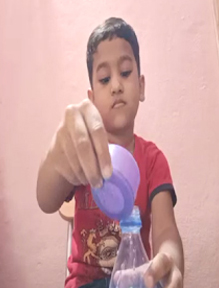
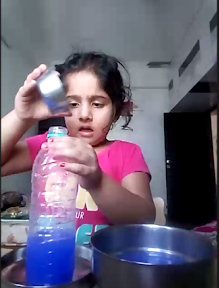
Opening a peg takes a lot of strength. Count and clip cards are a great practice using pegs. The child simply counts the objects on the card and then puts a clothespin on the correct number. This can be done with colour matching and sorting too.
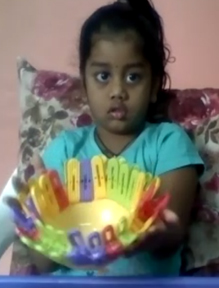
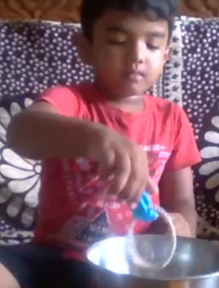
Activities such as Buttoning helps a child develop coordination, sense of order and concentration. Helping a child master self-care activities, such as buttoning their own clothes, folding their clothes curbs their frustration too..
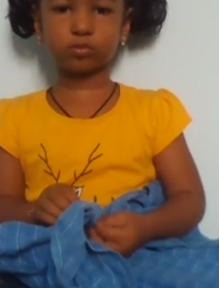

Using the pincer grip to slide beads onto pipe cleaners and make beautiful patterns and necklaces too develops fine motor skills
Threading beads helps to develop eye-hand coordination, fine motor skills and concentration.
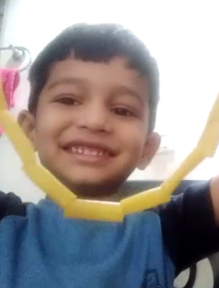
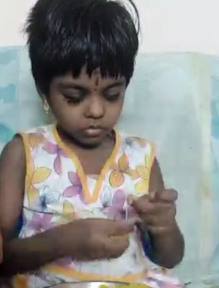
Just scrunching paper into a ball is great for building hand strength. You could use newspaper, tissue paper, wrapping paper or regular paper.
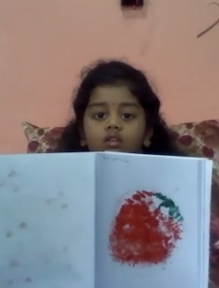
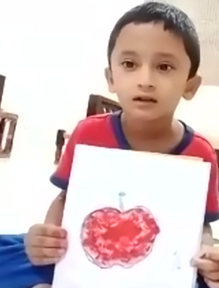
Kids love vibrant colours and the doughy texture of modelling clay and play dough. Playing with clay improves the fine motor skills and eye-hand coordination of the children. Clay is one medium that encourages children's imagination and creativity.
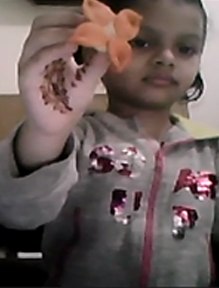
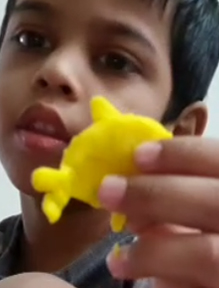
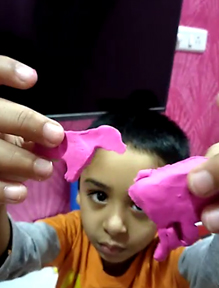
- Ms. Pallavi Kundam
Manas Choudhary (PP2) explains the importance of Dog
PP2 students enjoy Rainy Season activities
Students realize the importance of domestic animals in our life
Making of Eco friendly Ganesha by PP2
Leaf printing and Wool dabbing by PP1
K Lohith (PP2) explains the importance of Goat
Jazzy Rakhi making by PP2
J Srivedha Yadav (PP2) explains the importance of Cat
G Danvitha (PP2) explains the importance of Goat
Creative carving of fruits by PP1
B Ayansh Rao (PP2) explains the importance of Sheep
Paper crumple dabbing and cotton dabbing by PP1
A Jathin (PP2) explains the importance of Pig